"The Future Our Children Will Inherit": Experts Call for Action to Save Oceans on World Oceans Day
- On World Oceans Day, experts stress the urgent need for ocean conservation as our planet's life support system, which produces over 50% of our oxygen, is under threat from climate change
- The Southern Ocean's capacity to absorb CO₂ and heat from fossil fuels is declining, increasing the risk of irreversible sea-level rise and underscoring the need for rapid global emissions reduction to protect ocean health
- Briefly News spoke to experts, Helen Lockhart from Two Oceans Aquarium and Stellenbosch University Professor Pedro Monteiro
Maryn Blignaut is the Editor-in-Chief at Briefly News, where she leads the editorial vision to provide South Africans with accurate, engaging and impactful news. With a passion for using digital media to shed light on critical topics, she is dedicated to covering issues that matter to the nation, from inspirational human interest stories to pressing environmental challenges.
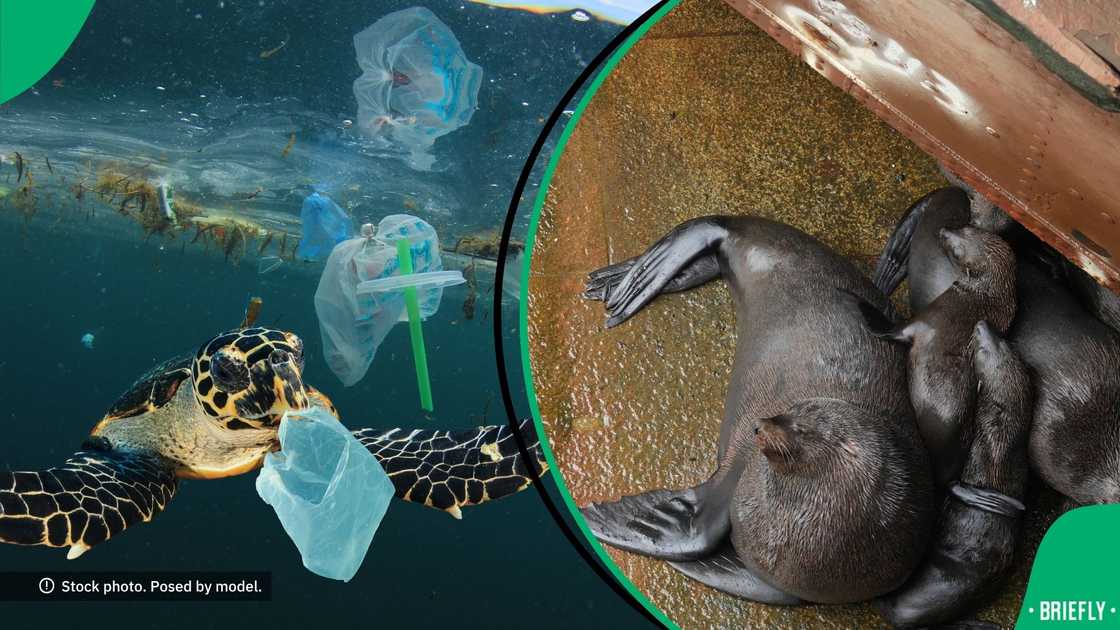
Source: UGC
CAPE TOWN - “Sustain what sustains us": These four words are at the core of this year’s World Oceans Day theme. The theme urges us to pause and consider how the ocean is tied to all life on our planet, and why we need to act now to ensure this vital life source doesn't continue to degrade.
The ocean is more than a perfect backdrop for those beachy TikTok videos or a playground for recreational activities - it is one of the most important things we need for our survival. There is no sugarcoating the fact that if we don’t protect our oceans, we are ultimately dooming ourselves.
Observed annually on 8 June, World Oceans Day is an international day officially recognised by the United Nations to celebrate the important role our oceans play in sustaining life on Earth. It's an opportunity for people worldwide to raise awareness about the importance of marine ecosystems, the threats our oceans face, and how we can move towards conservation and sustainable management.
PAY ATTENTION: Briefly News is now on YouTube! Check out our interviews on Briefly TV Life now!
With the valuable insights of two experts, Two Oceans Aquarium’s Helen Lockhart and Stellenbosch University Professor Pedro Monteiro, Briefly News explores the threats to our marine environment and the interconnected global challenges, the importance of our oceans for our survival and what we can do to protect the planet’s blue lungs.
Ocean health, climate change and our planet's survival
Is the ocean's critical importance to planetary health truly understood by most? On a surface level, many might know it produces oxygen, is a food source and regulates the climate. However, if the true extent of our dependence on it for survival were comprehended, we would have done more to ensure the sustainability of our oceans.
The ocean covers over 70% of the Earth's surface, and it plays an incredibly important role in regulating the global climate by absorbing significant amounts of carbon dioxide (CO₂) and heat. This, in turn, influences weather patterns, including rainfall, droughts and floods.
The US National Oceanic and Atmospheric Administration (NOAA) highlighted that the ocean produces over half of the world's oxygen and has absorbed about 25% to 30% of anthropogenic CO₂ emissions yearly. This means the ocean effectively stores about 50 times more CO₂ than the atmosphere. Furthermore, the United Nations Climate Change (UNFCCC) estimated that the ocean absorbed more than 90% of the excess heat from greenhouse gas emissions over the past several decades.
This global picture becomes even more focused and critical when we consider the role of a specific ocean. Speaking to Briefly News, Professor Pedro Monteiro, a leading voice in oceanography, offered a crucial perspective on the Southern Ocean's role. He described the Southern Ocean as "the flywheel of the Earth’s coupled carbon-climate system."
Professor Monteiro elaborated on the Southern Ocean's immense contribution:
"Over the past century, it has provided an enormous service to humans by mitigating the impacts of climate change through taking up half of the ocean’s anthropogenic CO₂ and 70% of the excess heat generated by our fossil fuel emissions."
Professor Monteiro’s insights into this flywheel also highlighted its vulnerability. He warned that if the flywheel is slowed, it is hard to get it to start spinning again.
He added: “South African and global science show that the capacity of the Southern Ocean to continue to take up fossil fuel linked CO₂ and heat is starting to decrease."
The Stellenbosch University professor, who leads the emerging research area of carbon dioxide removal (CDR), said there is a pressing need to bring down human CO₂ emissions under control by 2050.
Professor Monteiro highlighted some of the potential impacts if we do not heed the warnings now:
"Depending on our global carbon mitigation trajectory, these can affect Southern Africa and the planet through changes in water and food security, the productivity, biodiversity and resources of our coastal oceans and most importantly, a long term commitment to irreversible sea level rise of tens of metres through the collapse of parts of the ice shelves around Antarctica."
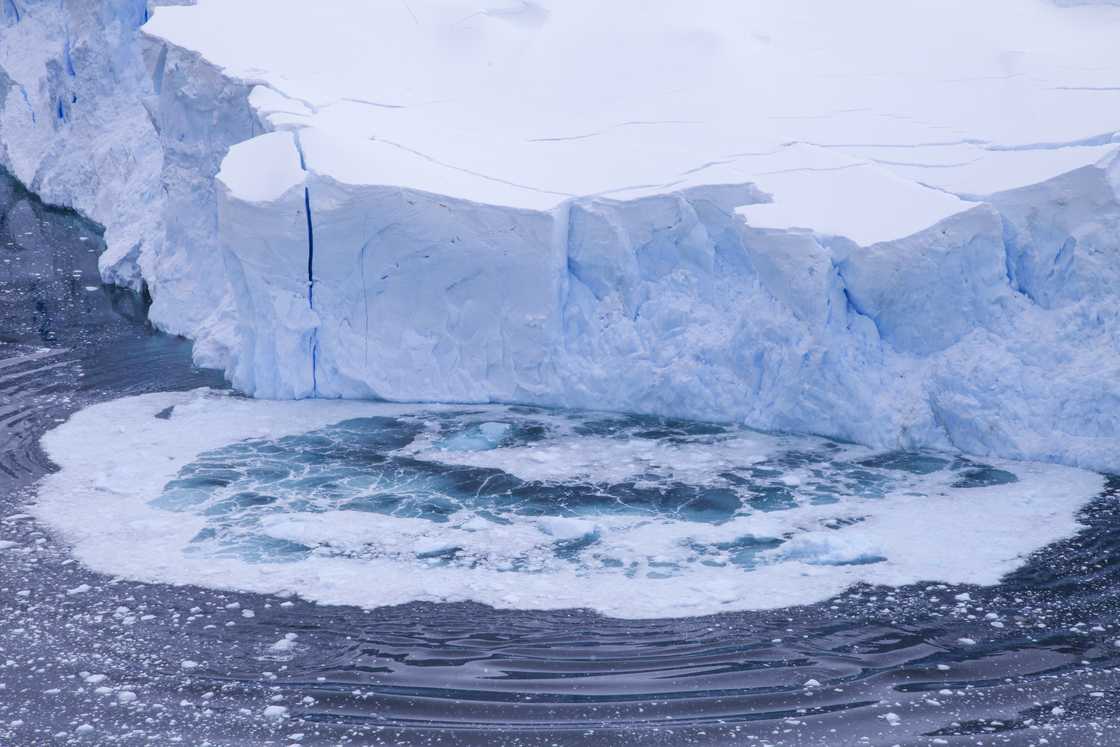
Source: Getty Images
Professor Monteiro's detailed explanation of the Southern Ocean's outsized role and its uncertain future proves the gap between general awareness and the deep, specific understanding needed to drive meaningful action. It highlighted that not only is the entire ocean vital, but specific components like the Southern Ocean are performing critical functions that are now threatened.

Read also
“This is what billionaires should sponsor”: Lady introduces way to solve housing issue, SA excited
Threats to our oceans
The ocean is fighting a battle many of us don't see. To be blunt: our actions are the assault, and if we don't change course now, we'll be responsible for delivering the final, devastating blow. Overfishing, plastic pollution, habitat loss, biodiversity decline, oil and gas exploration, deep sea mining and climate change were amongst what Helen Lockhart, conservation and sustainability manager for the Two Oceans Aquarium in Cape Town, listed as threats to oceans globally.
The amounts of CO₂ and heat absorbed by the ocean are putting strain on marine ecosystems, particularly coral reefs. These vital habitats, which sustain a vast number of species, are declining as a result of warming waters and ocean acidification. Scientists have warned that we could lose between 70% and 90% of coral reefs by 2050.
Apart from climate change, many human stressors are threatening our oceans, too. Overfishing continues at an alarming rate, with the UN Food and Agriculture Organisation (FAO) reporting in 2022 that over a third of global fish stocks are exploited at unsustainable levels. Illegal, unreported, and unregulated (IUU) fishing exacerbates this problem.
Widespread pollution, including chemical contaminants and nutrient runoff, contributes to habitat degradation and the expansion of low-oxygen "dead zones." These factors collectively lead to significant biodiversity loss and diminish the ocean's resilience.
Plastic Pollution is another big threat to the oceans. While estimates vary, it is reported that more than 11 million tons of plastic waste end up in the ocean every year. The majority enters the ocean from the land, while an estimated 1.75 tons are dumped into the sea directly from the fishing and shipping industry, according to Surfers Against Sewage. Another report by IUCN stressed that plastic pollution is a major driver of biodiversity loss and ecosystem degradation and contributes to climate change.
Helen Lockhart and the team at Two Oceans Aquarium have witnessed firsthand the devastating impact plastic waste has on our marine life. Speaking to Briefly News, she said:
”Floating plastic is often mistaken by turtles for food. In 2024 alone, 205 turtles passed 1 306 pieces of plastic. One turtle, a tiny loggerhead hatchling, had swallowed 96 plastic pieces."
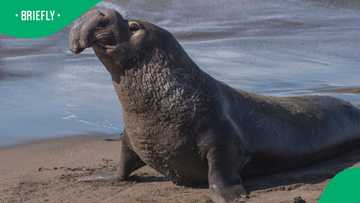
Read also
Elephant seal safely returned to ocean after surprising Gordon's Bay residents in viral video
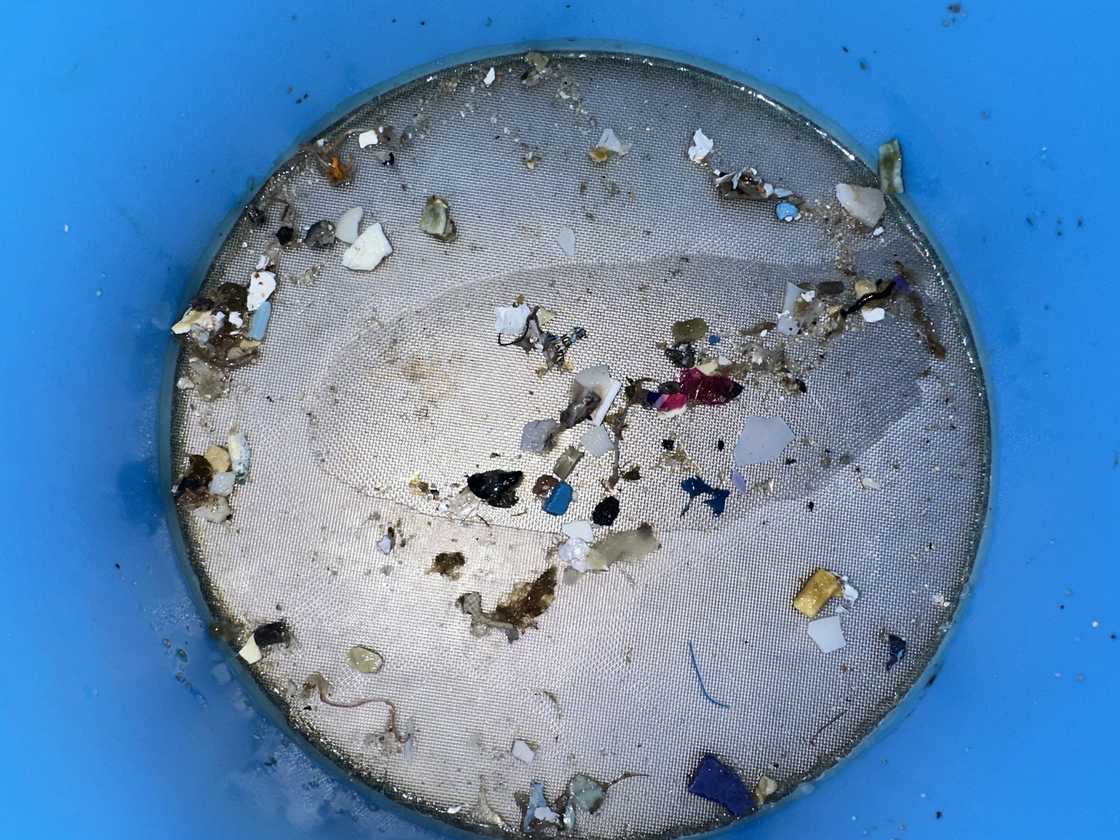
Source: UGC
Lockhart added that in the first three months of 2025, 11 rescued turtles excreted 121 plastic items. The stories of two turtles, Bob and Bokkie, highlight the issue of plastic waste in our oceans.
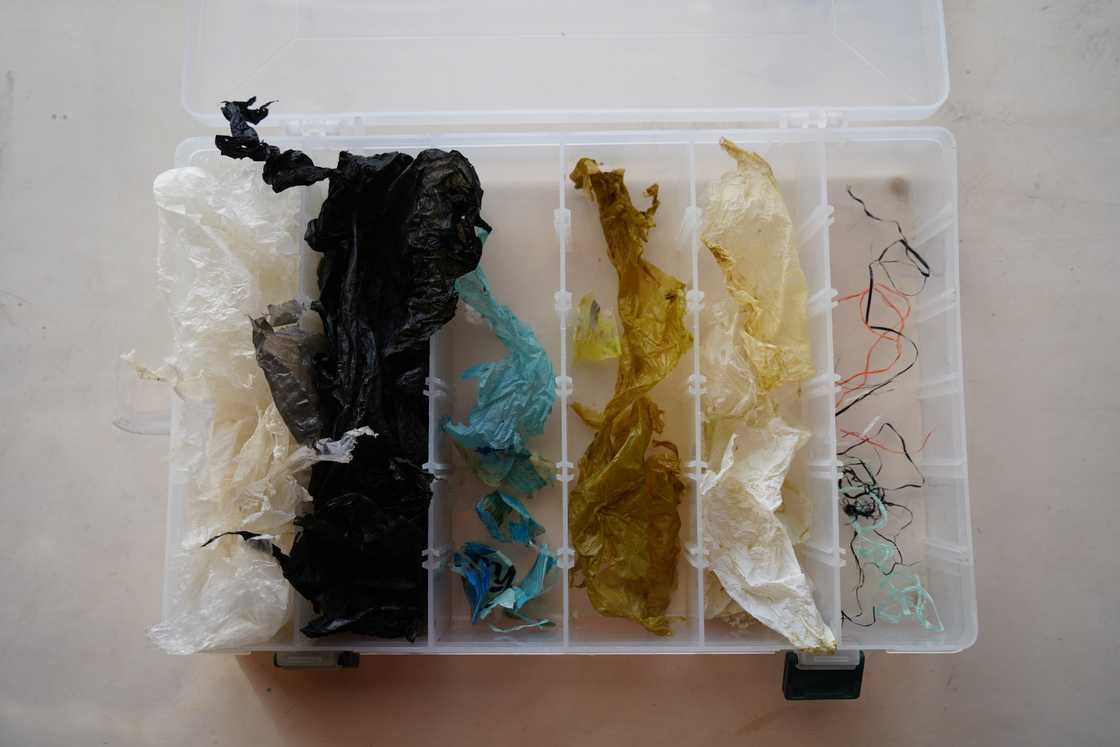
Source: UGC
Turtles are not the only marine species that Two Oceans Aquarium has helped with the aftermath of plastic waste exposure.
Lockhart said:
“Our Marine Wildlife Management Programme team regularly disentangles Cape fur seals which have life-threatening nooses around their necks. The nooses are from various types of plastic pollution.”
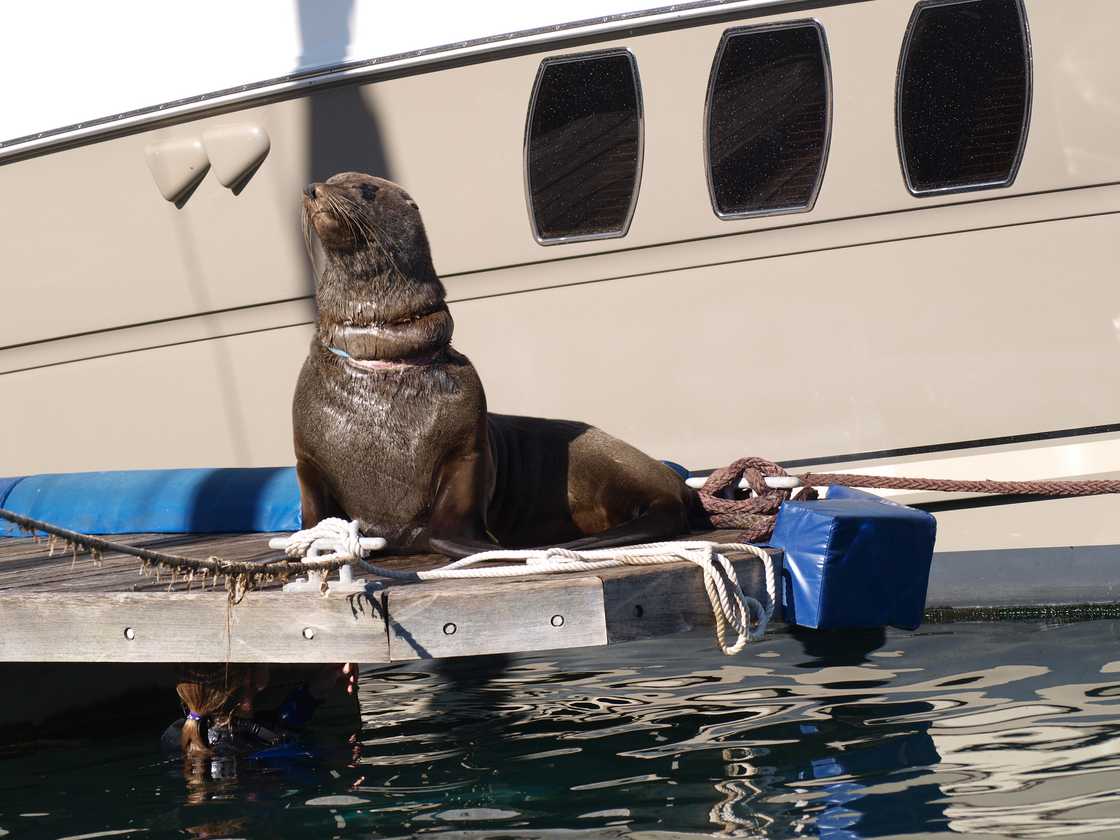
Source: UGC
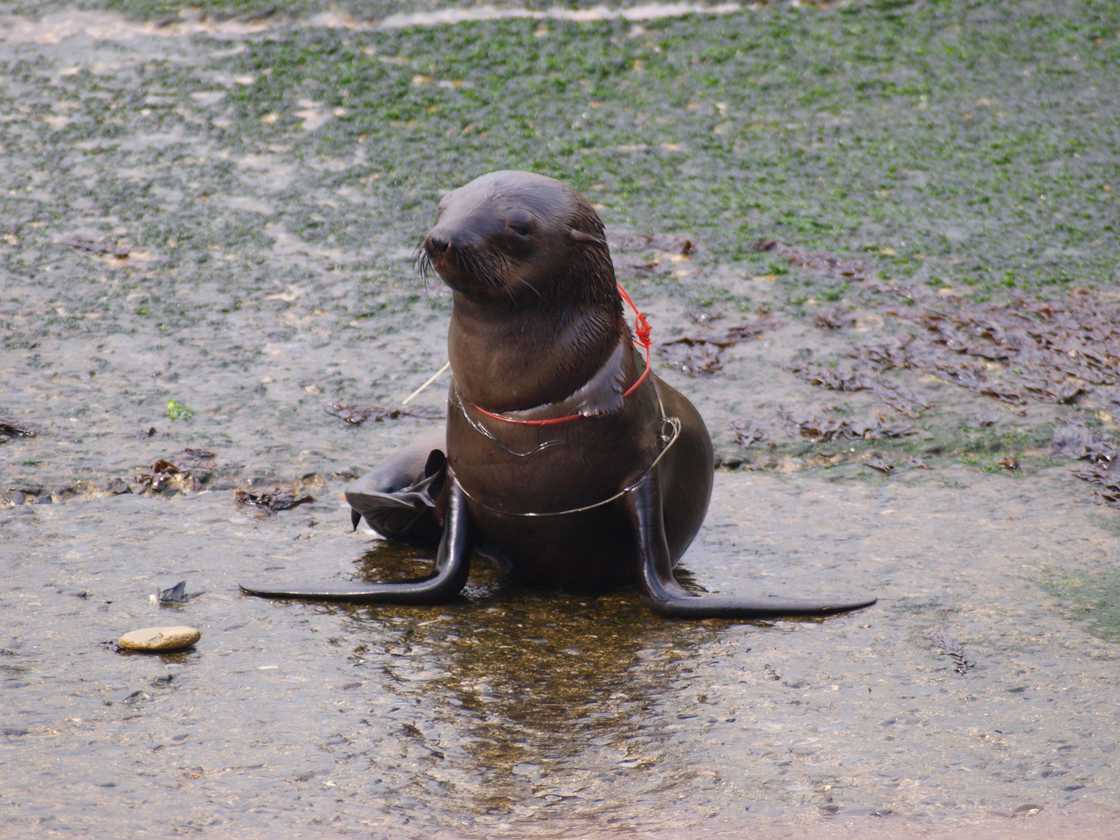
Source: UGC
Lockhart added that a lack of knowledge about the threats our oceans face could exacerbate this crisis:
“In South Africa, other threats include historical and ongoing lack of access to the ocean thereby impacting on livelihoods, and general lack of knowledge and awareness about the ocean and how our life on land affects the ocean. Urgent is action is needed now and we must make use of all available resources, scientific and cultural, for there to be hope for the future of our ocean and all people who rely on it.”
How can we protect our ocean?
There isn’t a quick fix to the problems our oceans face. But, that being said, it isn’t too late - yet. Protecting our oceans is going to take teamwork. Governments, organisations and individuals will have to work together to sustain this vital life-force.
Professor Monteiro emphasised:
"The single most effective global response to avoid turning the ocean from our life support to a threat remains rapid and sustained emissions abatement primarily by the 10 largest emitters."
Urgent action is required on a government level worldwide, and according to Professor Monteiro, it will require "stronger coordinated diplomatic efforts." Helen Lockhart pointed out that change needs to happen at a systemic level, which is harder to achieve due to economics and a lack of political and corporate will.
Both experts agreed that leadership should be held responsible, with Professor Monteiro urging that "as individuals we need to continue to hold our governments accountable for the future that our children will inherit."
While governments and organisations play the biggest role in sustainability, we can also make a difference on an individual level through small, everyday changes. However, a lack of knowledge about the extent of the climate crisis leads to millions of people living obliviously and recklessly in terms of sustainability
Professor Monteiro highlighted the power of individual choices, especially "wealthy people, [who] can contribute rapidly through making lifestyle choices that bring down our carbon budgets," adding that "it may seem that we as individuals have little impact, but the cumulative impact of our individual choices adds up rapidly."
The Stellenbosch University professor stressed that there is a need for systemic integration of climate awareness in every discipline, from physics and maths to literature and art, from primary to tertiary education.
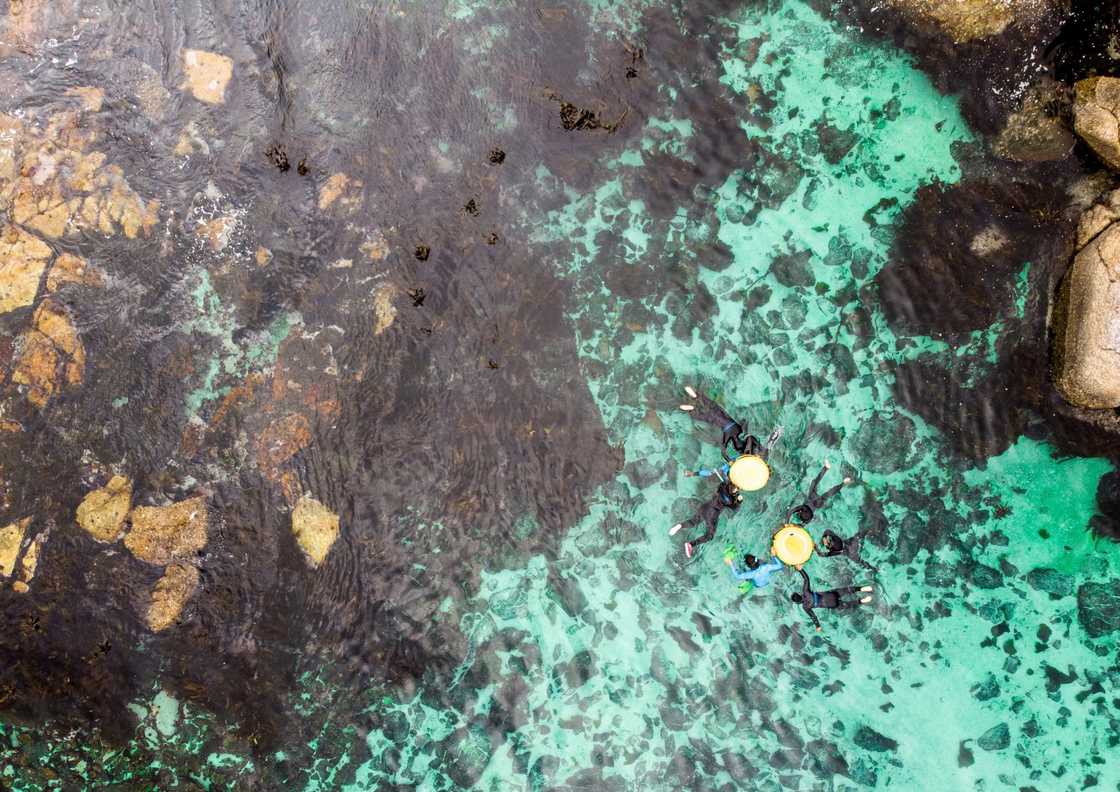
Source: UGC
Raising awareness to protect our oceans
The saying goes, “knowledge is power.” This is true in most aspects of life, and it is crucial for environmental sustainability too. The more people know about the issues our planet faces, the more likely they are to contribute to the solution.
This is why days like World Oceans Day are important. Many people worldwide come together on an individual and organisational level to raise awareness about the health of our oceans. It’s important that these efforts extend to more than just one day of the year.
Worldwide, and in South Africa, there are many groups and organisations pushing for sustainability. Whether through raising awareness, educating citizens, working with environmentalists and groups to set up protected areas or rehabilitating affected marine life, all these people have one goal in mind: to save this vital life force.
Cape Town-based NPO, I AM WATER Ocean Conservation Foundation, was nominated for the prestigious Earthshot Prize 2025, a global recognition that celebrates transformative and scalable solutions to repair and regenerate the planet. This is as the NPO celebrates 15 years of ocean connection workshops.
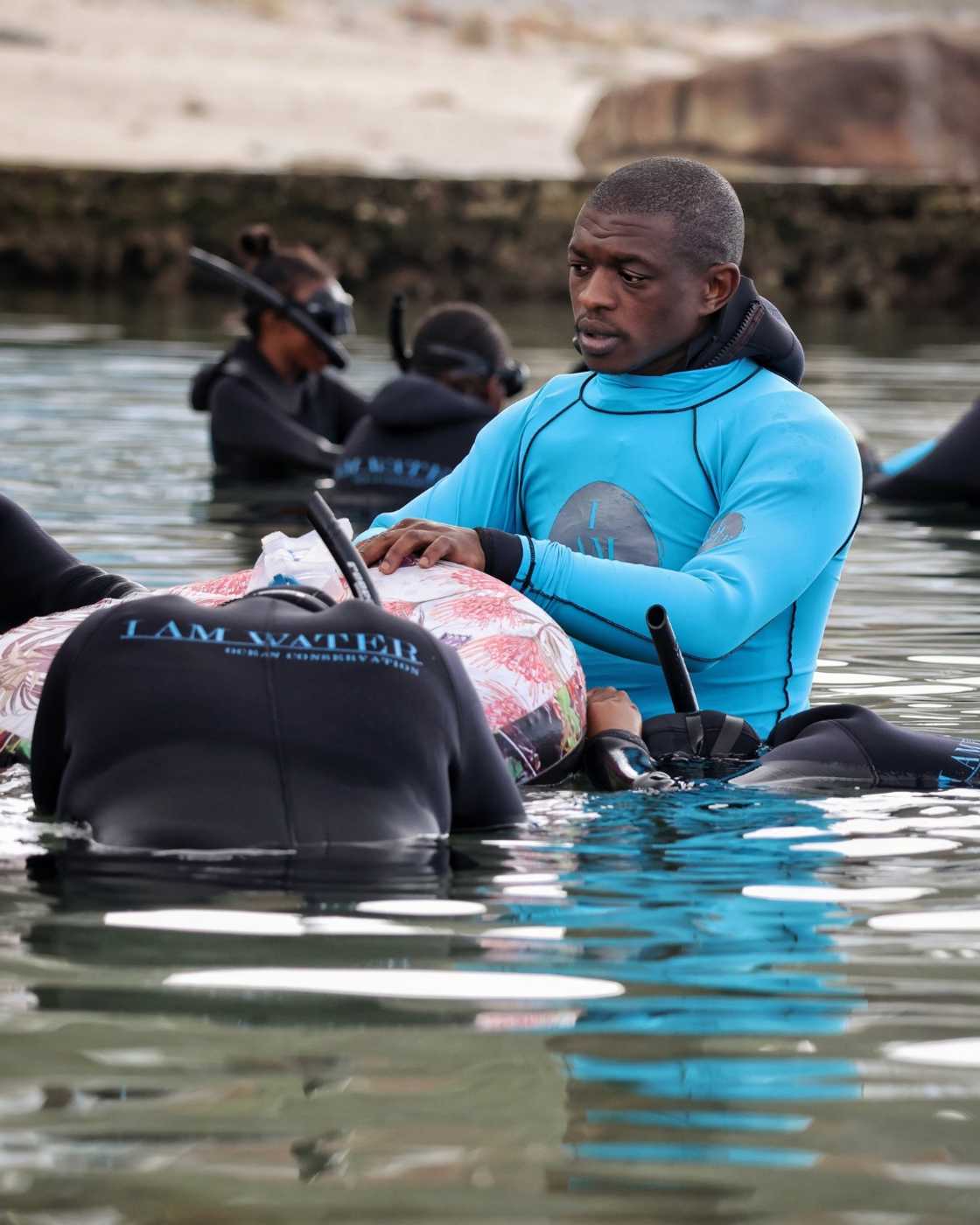
Source: UGC
The NPO has spent over 10 years connecting underserved youth with the ocean. I AM WATER founder Hanli Prinsloo understands the importance of raising awareness and forming a connection between the community and the ocean:
“We believe that to protect our oceans, we must first connect people to them – especially the next generation.”
Since 2019 alone, I AM WATER has reached more than 48,900 beneficiaries through immersive, ocean-based education.
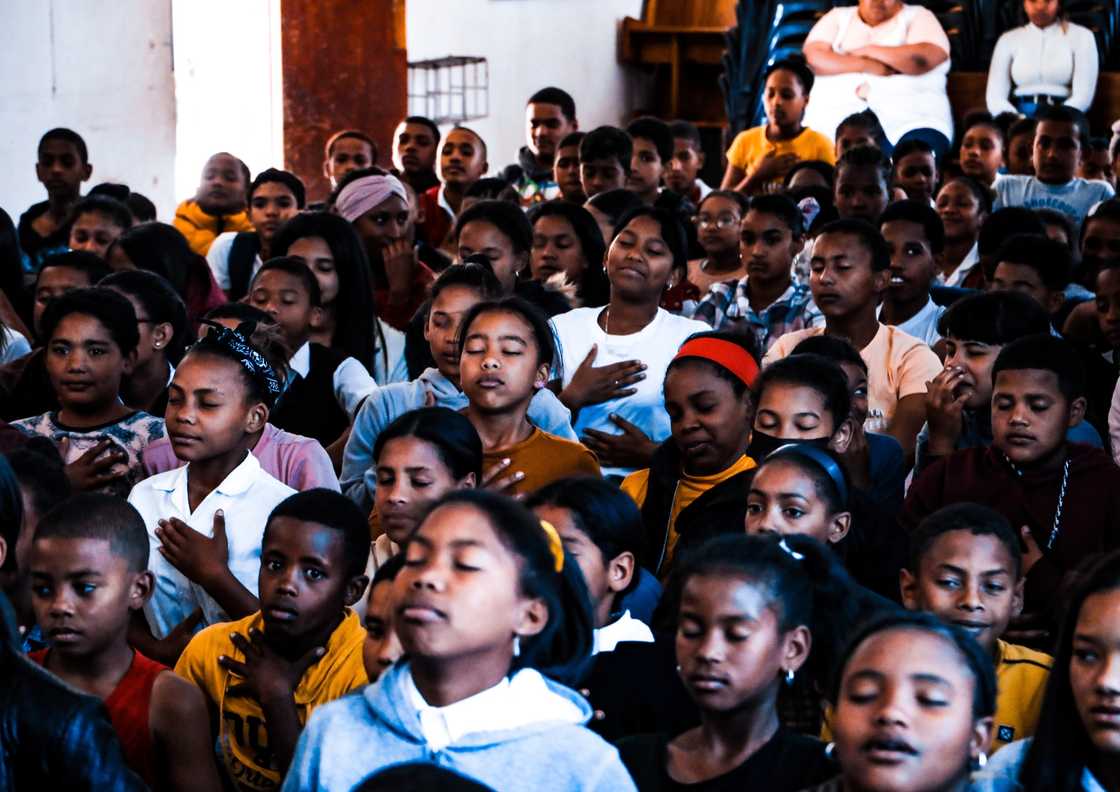
Source: UGC
A recent long-term impact study on I AM WATER’s Ocean Connection Methodology, conducted in partnership with the University of North Carolina Wilmington, showed that participants not only increased their ocean-positive actions following the workshops but sustained these behaviours over time - evidence of long-term, transformational change.
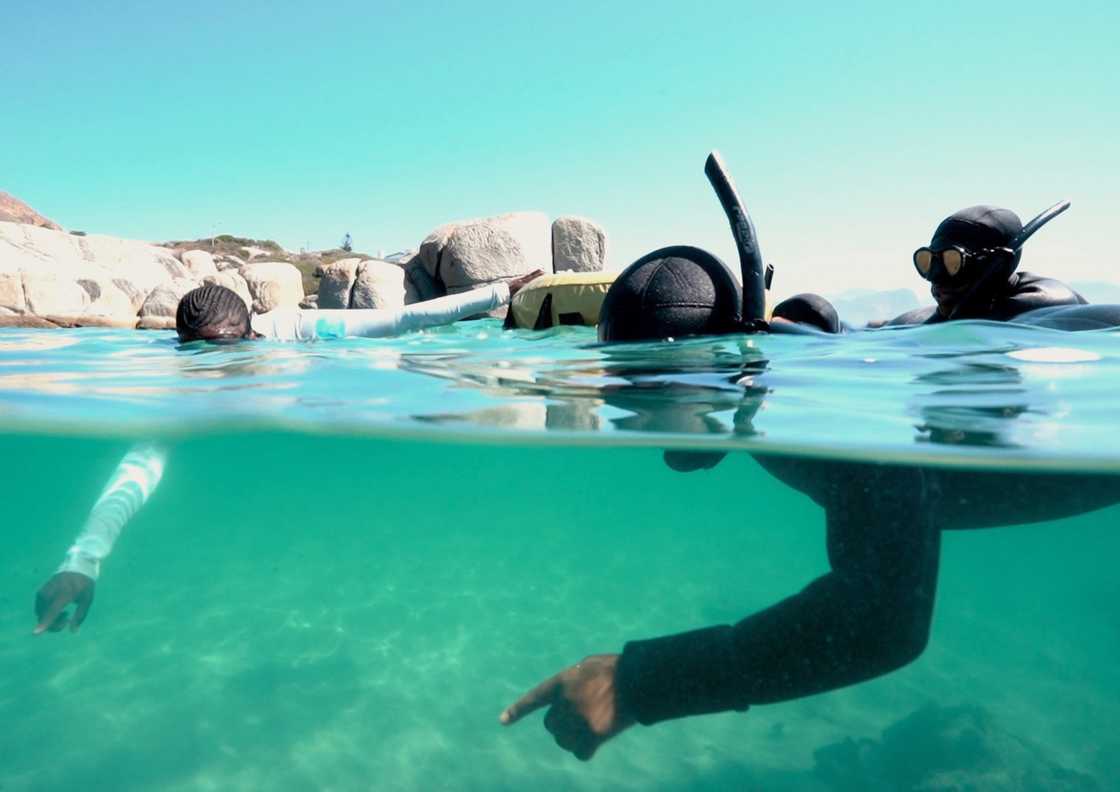
Source: UGC
Two Oceans Aquarium has also dedicated itself to teaching people about the importance of our marine ecosystems, as well as how to protect them. Helen Lockhart shared some insights into what the Two Oceans Aquarium hopes to achieve within the next decade:
“The Two Oceans Aquarium’s vision is abundant and healthy oceans for life. This is obviously a lofty goal and we won’t achieve this in ten years! However, I hope that, through the work of our Foundation, more South Africans are empowered with knowledge and greater understanding about the ocean, and that we can work towards transformative solutions which include everyone.
"And I hope that we will have inspired communities around Cape Town and indeed South Africa to act on behalf of the ocean at all levels of society.”
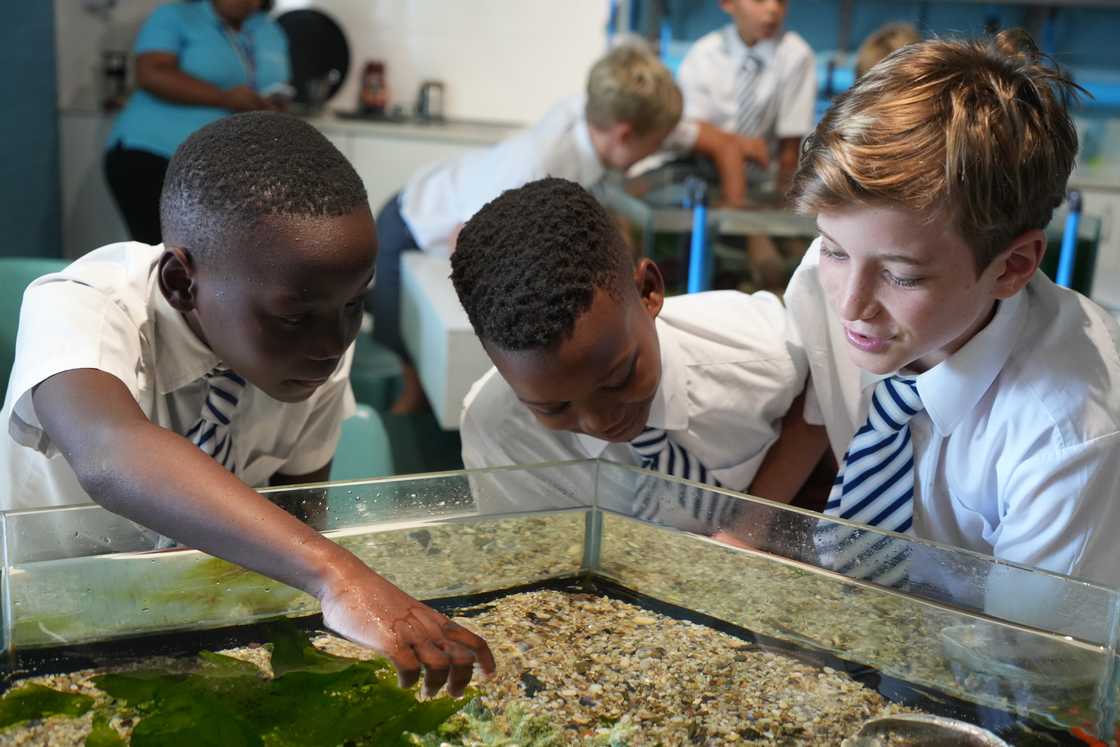
Source: UGC
Lockhart concluded with a sentiment that shows how much power we have in ocean conservation:
“The more people understand, that while they are part of the problem, they are also the custodians and drivers for solutions.”
3 More stories about climate change and environmental news
- In honour of World Environment Day, Briefly News reported SA Harvest urged South Africans to focus on a silent climate culprit, food waste.
- South Africa wastes over 10 million tonnes of food annually, contributing to harmful methane emissions from landfills, while more than 18 million of its citizens face daily food insecurity.
- In another story, Mzansi's reliance on fossil fuels, particularly coal, is one of the country's leading contributors to climate change.
PAY ATTENTION: Follow Briefly News on Twitter and never miss the hottest topics! Find us at @brieflyza!
Source: Briefly News








